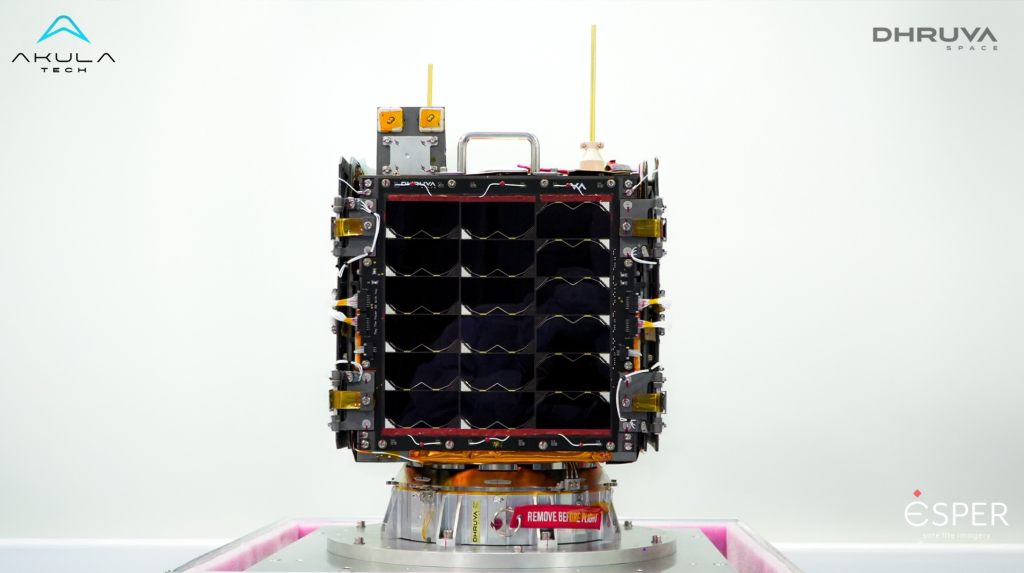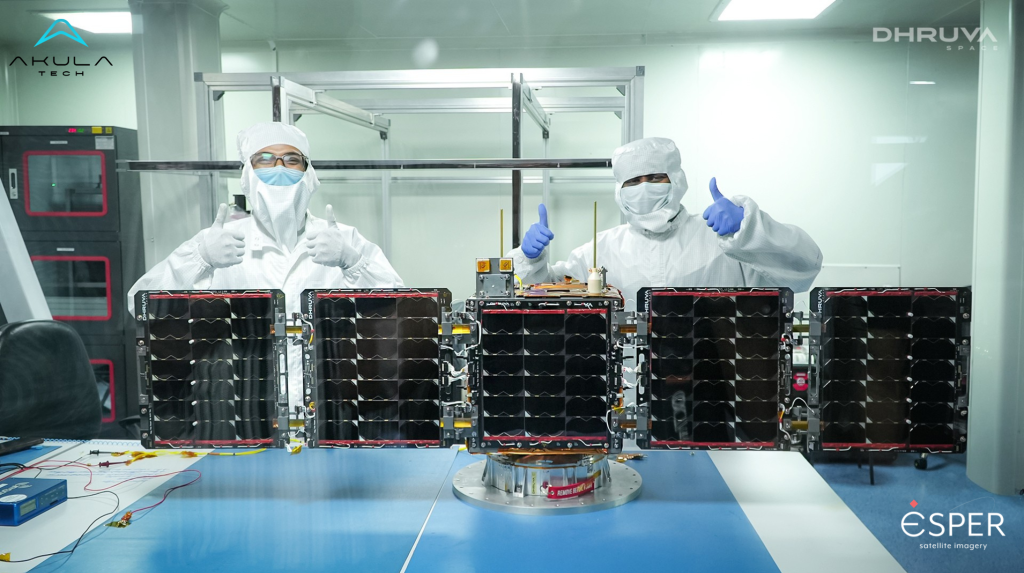 Melbourne-based deep-tech startup Akula Tech has launched Australia’s most advanced AI powered Smart Satellite Technology called Nexus-01 aboard SpaceX’s Falcon 9 rocket via Dhruva Space’s LEAP-1 mission. The mission was launched from Vandenberg Space Force Station in California.
Melbourne-based deep-tech startup Akula Tech has launched Australia’s most advanced AI powered Smart Satellite Technology called Nexus-01 aboard SpaceX’s Falcon 9 rocket via Dhruva Space’s LEAP-1 mission. The mission was launched from Vandenberg Space Force Station in California.
 (PHOTO: Akula Tech)
(PHOTO: Akula Tech)
Nexus-01 is Akula Tech’s ambitious demonstration of next-generation on-orbit AI. The satellite features an onboard computing module that processes hyperspectral data from Level 0 to Level 3 and simultaneously runs multiple AI models to generate diverse actionable insights, all in orbit. This real-time intelligence has critical applications across defence, emergency response, climate monitoring, mining, shipping, agriculture and beyond.
Akula Tech partnered with Dhruva Space, under the Launching Expeditions for Aspiring Payloads (LEAP) hosted payload program. The Nexus mission will also fly Esper Satellites’ OTR-2 hyperspectral imager, creating a complete in-space data acquisition and processing framework.
Akula Tech’s vision is to redefine satellite operations: instead of downlinking massive datasets and processing them days later on Earth, Nexus-01 enables near-real time onboard analysis, cutting the latency from days to minutes. With Esper’s cutting-edge hyperspectral sensor capturing rich Earth data and Akula’s AI engine Nexus processing and analysing it in orbit, this mission completes the end-to-end intelligence loop. Insights are delivered faster, precisely when they matter most.
“This is more than a satellite, it’s a vision becoming reality,” says Preetham Akula, CEO, Akula Tech. “Our team has built an AI engine that can run in orbit, analyse complex data like hyperspectral imagery, and deliver insights with minimal latency. This mission lays the foundation for Akula’s future software-defined smart satellites and next-generation space-based real-time intelligence infrastructure. Partnering with Dhruva Space and Esper Satellites for this mission allows us to validate this technology in the real world.”
Shreyas Urunkar, CTO, Akula Tech, adds: “Nexus-01 is about demonstrating the power of adaptability and speed in space. Our system can retrain models in orbit, adjust to new data, and operate in parallel across multiple use cases, whether it’s mapping floods or tracking wildfires. This level of onboard intelligence represents a real shift in how we utilize satellite capabilities.”
Nishq Ravindranath, Chief AI Officer, Akula Tech, said: “Nexus-01 mission represents a breakthrough in space-based artificial intelligence. Our space-ready AI model optimization technology allows us to optimize and compress any geospatial AI/ML models to run efficiently on the edge in space, supporting applications like fire detection, anomaly detection, and spectral analysis that provide near real-time insights to government and defence personnel. Furthermore, these models will improve themselves over time by continuously retraining live sensor data. This launch will give flight heritage to five of our distinct software products while enabling the uplink of newer AI/ML models directly to the satellite throughout the mission lifetime. Most importantly, it establishes the foundation for an autonomous, coordinated constellation of Software-Defined Smart satellites that work together as a swarm, essentially placing a geospatial intelligence analyst directly in space to sense and detect critical features of interest.”
This mission marks a new chapter, not just for Akula Tech and Nexus-01, but for Australia’s emerging leadership in intelligent satellite technology. This launch represents the first step toward building a constellation of AI-enabled satellites capable of addressing global challenges through real-time decision-making.
For Editorial Inquiries Contact:
Editor Kym Bergmann at kym.bergmann@venturamedia.net
For Advertising Inquiries Contact:
Group Sales Director Simon Hadfield at simon.hadfield@venturamedia.net



